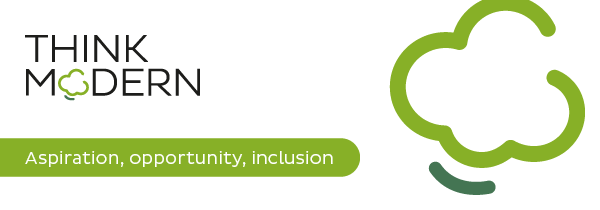

Mental Health Education, not Entertainment - University of Bedfordshire
24 Apr 2019
Lots of people are talking about mental health and although that is encouraging, it doesn’t necessarily mean people are saying the right things. It's almost as if they have discovered this new thing and they don't know what to with it. Stuff like that can be harmful to them and others by putting incorrect information or unhelpful content out there.
Mental health is a serious topic and we all should take opportunities to improve our surrounding environments to prevent mental ill health or manage mental health problems.
For me, tackling stigma and discrimination is key to achieving better mental health for everyone. Sometimes discrimination can be obvious, but it can also be hidden in employer practices, policies and some laws. It can also take the form of subtle actions from others to treat people who have mental health problems differently. This can leave the person feeling more isolated and can trigger negative thinking in their life, so increasing the stigma.
How it can be taken into the community?
It's simple to make changes to your environment to improve mental health. Have open conversations about mental health, listen more and talk less when someone is talking about their mental health, and get your employer, community, school, local businesses to deliver the Time To Change pledge.
You can also join your local mental health charities and ask your university to support you.
The University of Bedfordshire was instrumental to my development
A wide variety of individuals at university contributed to my work, especially to the charity I founded Our Minds Matter. My supervisors gave me lots of confidence to help develop my ideas by sharing what they know. They also taught me how to use tools to effectively evaluate the impact of the work we do at the charity. They never dismissed the intellectual arguments but rather give me lots of examples of other areas where similar concepts have worked.
It's not just the teaching staff, but right across the university; despite being under pressure, staff have been very supportive and welcoming. I was proud to win the HM Lord Lieutenant Community Engagement award at the Vice Chancellor’s Student Experience Awards in 2017. Winning was such a shock, I stayed in my seat for a few moments.
Founding of Our Minds Matter
I remember delivering a short seminar on the positive role of faith/religion on mental health at Denbigh High School, where I received my secondary education. It was the first time I had been back there in a formal capacity since leaving there with my GCSE results (I only managed to get 3 A-C’s, but looking back and given the circumstances I respected my results!).
After this seminar I asked members of the audience who would like to form a group. A few members put up their hands and two of them are still with me today and are co-founders, Catherine and Ali.
We are now a registered charity focused on promoting mental health in the diverse communities of Luton and Bedford. Our team consists of individuals who have either professional or personal experience in the field of mental health. We understand the challenges that community leaders, health service providers, employers, commissioners and stakeholders are facing when reaching out to the diverse population. We have developed a targeted approach to help tackle health inequalities and promote mental health and wellbeing.
Our insightful conference brought together many committed individuals across the town to explore how we can break the stigma attached to mental health in our communities by using faith and culture. Further activities included coffee morning sessions during Mental Health Awareness Week which allowed us to spread the word of mental health wellbeing. We believe no one should fear being judged for talking about mental health and how it affects them.
Our outreach team attended a variety of summer events to talk to folk about mental health and how we need to have those conversations in our networks of friends and families. Our sporting event organised in partnership with Community Needs engaged more than 300 people in the town and gave them an opportunity to learn about the mental health services available.
Our Minds Matter has also been awarded hub status as the official ‘Time To change Hub’ in Luton and we have also developed a Bedford branch of the charity.
Time to Change Hubs, are local partnerships which have demonstrated their commitment to: putting people with personal experience of mental health problems at the heart of their work; embedding anti-stigma and discrimination work locally, whether that be local schools, workplaces or other community settings; and proactively campaigning to improve people’s attitudes and behaviours towards mental health.
Jolel Miah, PhD student at the University of Bedfordshire